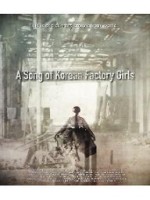130, Suyeonggangbyeon-daero,
Haeundae-gu, Busan, Republic of Korea,
48058
DATABASE
A Song of Korean Factory Girls (2024)
In the 1910s, Korea's economy collapsed due to Japan's forced invasion. Teenage Korean girls worked in spinning mills in Osaka, Japan, to support their families, with some as young as 11 years old. Female workers from Korea who toiled in Osaka's spinning mills, leading the world's spinning industry, faced lower treatment and poorer conditions compared to their Japanese counterparts. They endured discrimination, violence, and sexual exploitation.
While the Japanese discar...more
While the Japanese discar...more
| Genre | Documentary | Production Status | Released |
|---|---|---|---|
| Running Time | 83min | Release Date | Aug 07, 2024 |
| Country | South Korea | Rating | |
| Language | Co-Production | N | |
| Original |
-
Number of Screens : 48
-
Total Admissions : 6,679
-
Total Gross : $38,742
As of Jan 20, 2026
-
Cinema DAL | cinemadal@cinemadal.com
- Republication, copying or redistribution by any means is prohibited without the prior permission of KOFIC and the original news source.



























